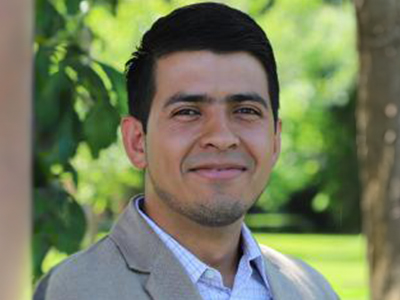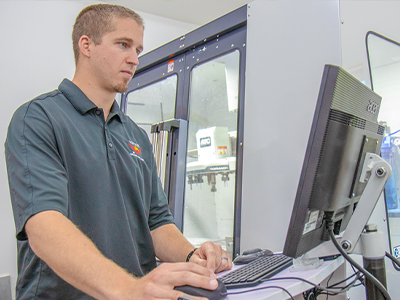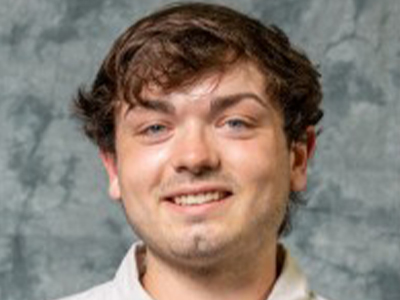DWFI Student Support Program celebrates 10 years of research opportunities
DWFI is celebrating the 10th anniversary of its student support program this year. The institute has allocated more than $4.2 million to 143 student research projects since the program began in 2014. These funds are awarded to Faculty Fellows to be used for undergraduate, graduate and doctoral students pursuing research that advances our mission to ensure a water and food secure future for our world. More than $3 million of these funds have been matched one-to-one by faculty.
Student-run research projects have advanced knowledge of best practices, developed new technologies and validated what works – and what doesn’t – in improving water use and agricultural productivity in Nebraska, throughout the U.S. and in other countries. Throughout the lifetime of the program, there have been more than 160 academic publications as a direct result of DWFI student support funding.
DWFI reached out to former students who benefitted from the Student Support Program to find out what they are doing now. Some students have started their own entrepreneurial businesses, others have joined major corporations, some are working in governmental agencies, while others have stayed in academia or joined non-profit organizations. A few changed direction and are working in other fields. But, they all had good things to say about their research projects and their time at the University of Nebraska. We’ve selected a few of the students’ stories to showcase their achievements.
Osler Ortez, Assistant Professor - Corn & Emerging Crops, Ohio State University

Former graduate student Osler Ortez earned his doctoral degree in agronomy and horticulture in 2021 and is now an assistant professor at Ohio State University. His DWFI Student Support program research project examined corn ear abnormalities and resulting lower yields. His research findings were published in several peer-reviewed journals and extension articles, and Osler presented his research at academic conferences in Nebraska and other states. He earned several awards and scholarships for his DWFI Student Support Program research. “I encourage students to consider developing as many skills as possible during graduate school and certainly going further than the research,” said Ortez, “All of these skills will serve well in future endeavors.”
Jim Higgins, President, Drone Amplified

Former graduate student Jim Higgins is now president of Drone Amplified, a Nebraska-based drone company that is saving lives of front-line wildland firefighters and reducing costs through drone technology. “DWFI provided the funding that allowed me to do drone research, which set me on the path to start Drone Amplified, which has pioneered a new way to prevent and combat wildfires,” said Higgins. “And, my co-advisor in the research is now the CEO!”
Jagadeesh Puvvula, Postdoctoral Research, University of Pennsylvania

Jagadeesh Puvvula used his DWFI-supported research to evaluate potential associations between atrazine exposures and pediatric cancer outcomes at a watershed scale in Nebraska. “After examining extensive water well data over three decades, we observed that children living in areas with higher atrazine concentrations had higher cancer risks,” noted Puvvula. He added that his experience working at the Water, Climate and Health program, a specialty program supported by DWFI, UNMC and IANR. “The support that I received through DWFI and the guidance of my mentor, Dr. Jesse Bell, had a substantial impact on my career. My doctoral research work at UNMC sparked my interest in molecular epidemiology. With this motivation, I started my postdoctoral training at the University of Pennsylvania, where I am examining the associations between gestational/childhood exposure to environmental chemicals with endocrine-disrupting properties,” explained Puvvula.
Justin Caniglia, Environmental Chemist, Omaha Public Power District & Adjust Professor, Bellevue University

Justin Caniglia used his research funding to better understand how PFAS (aka “forever chemicals”) are transported within surface waters, agricultural ecosystems, and waste water in the Midwest. After earning his master’s in Natural Resources Sciences at UNL in 2021, Caniglia taught introductory STEM courses at Metro Community College in Omaha, Nebraska. He is currently working for Omaha Public Power District as an environmental chemist and continues teaching as an adjunct instructor for Bellevue University. He plans to return to the University of Nebraska in 2025 to pursue a doctoral degree.
Since its inception, DWFI has focused on the power of education to expand knowledge and innovation to improve water and food security. The Student Support Program plays an important role in developing the next generation of water experts – creating a ripple effect of global impact for every student who receives research funding.
Related links
Top image caption
Students in an irrigation field course led by DWFI Faculty Fellow Derek Heeren study stream flow at Salt Creek in Lincoln, Nebraska.
Credit: DWFI
COOKIE USAGE:
The University of Nebraska System uses cookies to give you the best online experience. By clicking "I Agree" and/or continuing to use this website without adjusting your browser settings, you accept the use of cookies.

